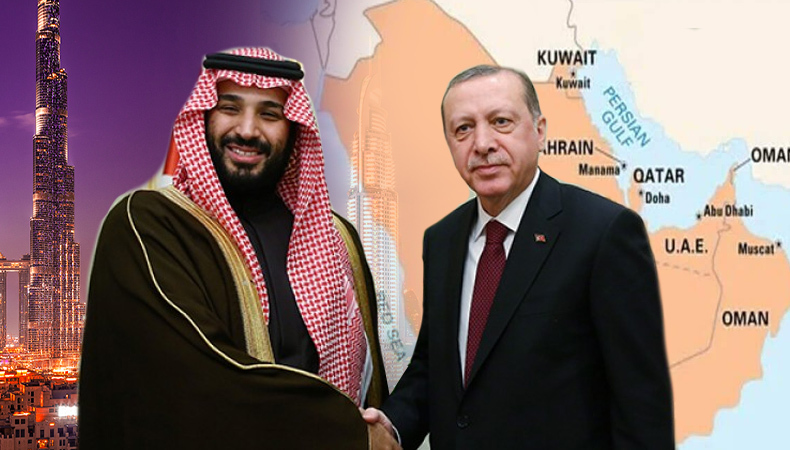Strengthening Turkish-Gulf Relations: A Path to Sustainable Cooperation

An important turning point in Ankara’s relations with the region has been reached with the recent Gulf tour by Turkish President Recep Tayyip Erdogan. The three-day tour was intended to create new alliances based on shared economic and security interests while solidifying the normalisation process with Saudi Arabia, the UAE, and Qatar.
A huge defence cooperation pact, the biggest in Turkish history, was signed due to Erdogan’s trip to Saudi Arabia. This action demonstrates the growing Gulf interest in the Turkish defence sector, which benefits Ankara’s economy while also coordinating defence connections with the national interests and regional policies of Gulf countries.
In Qatar, the visit celebrated 50 years of diplomatic relations and highlighted the strong economic motivations behind the Turkish-Qatari relationship. While economic interests form the bedrock of this alliance, it also involves ideological and political considerations, creating a marriage of convenience between the two nations.
The tour’s final stop was the UAE, where Erdogan was honoured with the Order of Zayed, signifying the elevation of Turkish-Emirati relations to a strategic partnership. With $50.7 billion of agreements signed across various fields, the Turkish-Emirati relationship has evolved from former foes to pragmatic strategic partners, primarily driven by economic gains.
The emphasis is now on deepening and sustaining the economic cooperation outlined in the inked accords. Long-term collaboration between Turkey and the Gulf states will have significant political consequences, even though the first rapprochement attempts were primarily focused on economic goals.
Even if there are still some political differences, both parties have decided to pragmatically “agree to disagree” to preserve their recently mended relationships. A long-term strategic alliance, however, provides strategic advantages.
Turkey is an essential partner in transformation processes because its alluring five-year investment plans fit in well with the ambitious national ambitions and economic diversification plans of the Gulf countries.
Although the fundamental concerns that caused previous tensions have been handled or reduced, regional instability in Syria, Yemen, Libya, and Iraq continues to worry Turkey and the Gulf states. For Turkey, collaboration on these regional issues is crucial, and lasting economic accords may lead to stronger regional cooperation based on similar political objectives.
The continuation of the parties’ economic and security cooperation will determine the outcome of this journey and the future of Turkish-Gulf relations. Turkey and the Gulf states are positioned to play crucial roles in determining the future dynamics of the region as long as they continue to develop their mutual trust and establish common ground. The Middle East will become more stable and affluent due to the strategic collaboration between Turkey and the Gulf states.




